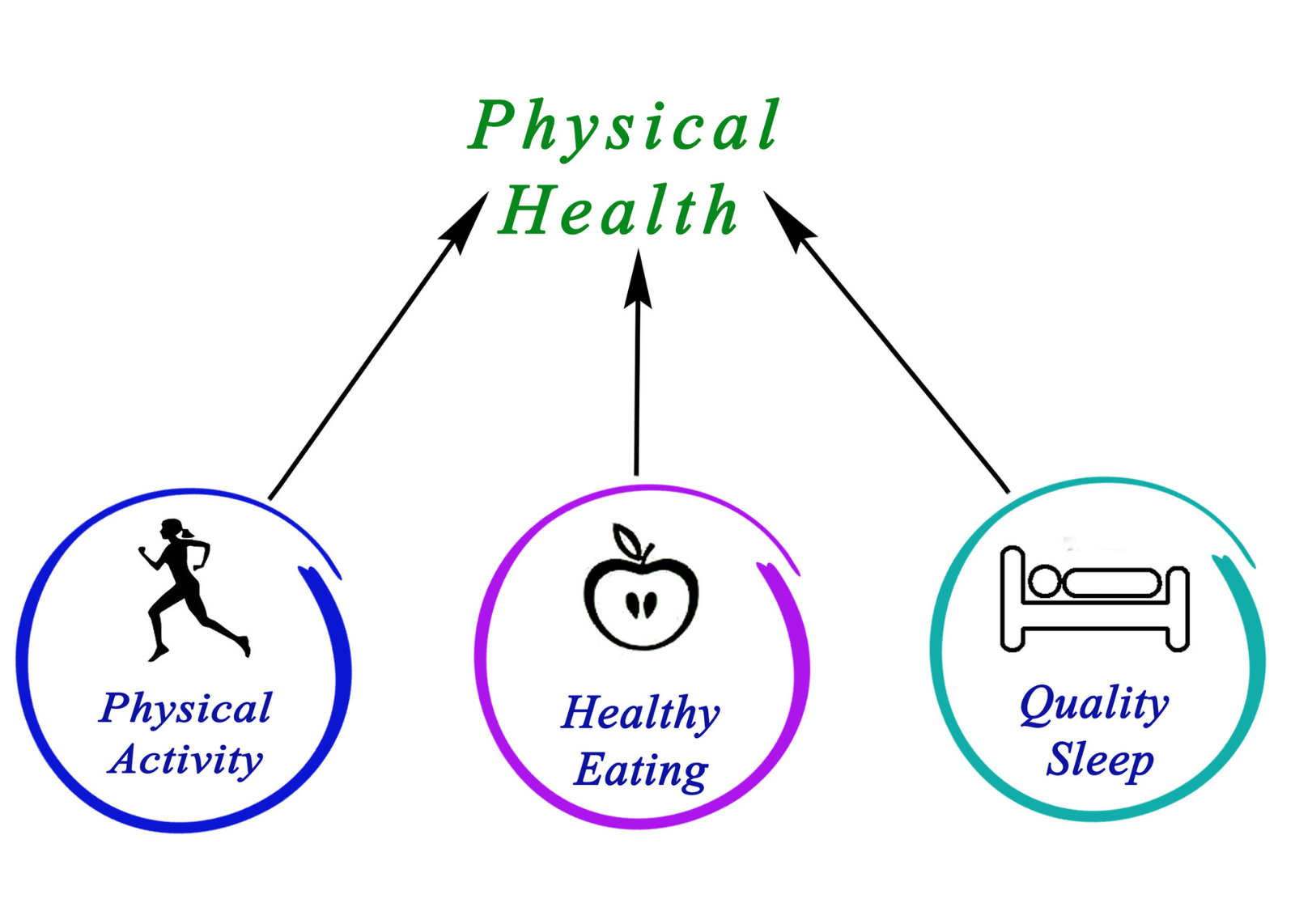A Holistic Perspective
In our journey through life, we navigate not only physical landscapes but also the intricate terrain of our minds. The human experience is a delicate balance between our physical well-being and our mental health, each intricately connected and influencing the other. Understanding the complexities of both aspects is crucial for achieving overall wellness and leading fulfilling lives.
Physical Health: The Foundation of Well-Being
Physical health encompasses the condition of our bodies and our ability to function optimally. It includes factors such as nutrition, exercise, sleep, and the absence of illness or disease. When we prioritize our physical health, we provide our bodies with the essential resources they need to thrive.
Nutrition plays a fundamental role in fueling our bodies and supporting vital functions such as growth, repair, and immunity. A balanced diet rich in fruits, vegetables, lean proteins, and whole grains provides the nutrients necessary for optimal health. Additionally, staying hydrated and avoiding excessive consumption of processed foods, sugary drinks, and unhealthy fats can promote overall well-being.
Regular exercise is another cornerstone of physical health, benefiting not only our physical bodies but also our mental health. Engaging in physical activity releases endorphins, neurotransmitters that promote feelings of happiness and reduce stress. Whether it’s brisk walking, jogging, swimming, or yoga, finding activities that we enjoy and incorporating them into our daily routines can have profound benefits for our well-being.
Adequate sleep is essential for rest and recovery, allowing our bodies to repair tissues, consolidate memories, and regulate hormones. Chronic sleep deprivation can impair cognitive function, weaken the immune system, and increase the risk of developing various health conditions, including obesity, diabetes, and cardiovascular disease. Prioritizing quality sleep by establishing a consistent sleep schedule, creating a relaxing bedtime routine, and creating a conducive sleep environment is essential for maintaining optimal health.
Mental Health: Nurturing the Mind and Soul
While physical health addresses the condition of our bodies, mental health encompasses our emotional, psychological, and social well-being. It influences how we think, feel, and behave, shaping our perceptions of ourselves and the world around us. Mental health is not merely the absence of mental illness but rather a state of positive well-being in which we can cope with life’s challenges, build meaningful relationships, and fulfill our potential.
Self-care practices such as mindfulness, meditation, journaling, and spending time in nature can help cultivate emotional resilience and promote mental well-being. These practices encourage self-awareness, reduce stress, and foster a greater sense of inner peace and fulfillment.
Social connections are also vital for mental health, providing support, companionship, and a sense of belonging. Nurturing relationships with family, friends, and community members can buffer against loneliness and isolation, reduce the risk of depression and anxiety, and enhance overall life satisfaction.
Seeking professional help when needed is essential for addressing mental health challenges and obtaining the support and resources necessary for recovery. Therapists, counselors, and mental health professionals can provide guidance, therapy, and medication management to individuals experiencing mental health issues, empowering them to navigate life’s challenges and build resilience.
Exploring the Spectrum: An Introduction to Different Types of Humans
In the grand tapestry of humanity, there exists a multitude of personalities, each with its own unique characteristics and quirks. From the outgoing extroverts who thrive in social settings to the introspective introverts who find solace in solitude, the spectrum of human personality is vast and endlessly fascinating. But beyond the well-known labels of introvert and extrovert lie other intriguing types, such as empaths and psychopaths, each offering a glimpse into the complexity of human nature.

Introverts: The Quiet Contemplators
Often misunderstood as shy or antisocial, introverts are individuals who recharge their energy by spending time alone or in small, intimate gatherings. They tend to be introspective and thoughtful, preferring deep conversations over small talk. While they may not seek out social interactions as eagerly as extroverts, introverts have rich inner worlds and thrive in environments that allow them to reflect and recharge.
Extroverts: The Life of the Party
On the opposite end of the spectrum are extroverts, who gain energy from being around others and thrive in social situations. These individuals are outgoing, sociable, and often the life of the party. They enjoy being in the spotlight, engaging in lively conversations, and making new connections. Extroverts are energized by external stimuli and tend to be more spontaneous and action-oriented.
Empaths: The Emotional Sponges
Empaths possess a heightened sensitivity to the emotions of others, often experiencing them as if they were their own. They are deeply attuned to the feelings of those around them and possess an innate ability to understand and empathize with others’ experiences. While this heightened empathy can be a gift, allowing empaths to connect deeply with others, it can also be overwhelming, leading them to feel emotionally drained in crowded or chaotic environments
Psychopaths: The Enigmatic Outsiders
Psychopaths, on the other hand, occupy a darker corner of the human psyche. Characterized by a lack of empathy and remorse, psychopaths often exhibit superficial charm, manipulative behavior, and a penchant for risk-taking. Despite their negative reputation, not all psychopaths are violent or criminal; many blend seamlessly into society, utilizing their charm and charisma to achieve their goals. However, their inability to form genuine emotional connections can lead to destructive behavior and a disregard for the well-being of others.
Navigating the Human Landscape
While these labels offer a framework for understanding human behavior, it’s essential to recognize that personality exists on a spectrum, and individuals may exhibit traits from multiple categories. Moreover, labels such as introvert, extrovert, empath, and psychopath are just that—labels. They do not encapsulate the full complexity of human nature, nor do they define a person’s worth or potential.
Instead of viewing these categories as rigid boxes, we can embrace the diversity of human experience and celebrate the unique qualities that make each individual who they are. By fostering empathy, understanding, and acceptance, we can navigate the intricate landscape of human personality with curiosity and compassion, recognizing that beneath the surface, we are all connected by our shared humanity.
Conclusion: Integrating Physical and Mental Well-Being
In conclusion, human health encompasses both physical and mental dimensions, each playing a vital role in shaping our overall well-being. By prioritizing nutrition, exercise, sleep, and self-care practices, we can support our physical bodies and cultivate resilience in the face of life’s challenges. Similarly, by nurturing our emotional, psychological, and social well-being, we can foster inner peace, fulfillment, and connection with ourselves and others. By recognizing the interconnectedness of physical and mental health and adopting a holistic approach to wellness, we can embark on a journey of self-discovery, growth, and transformation.




